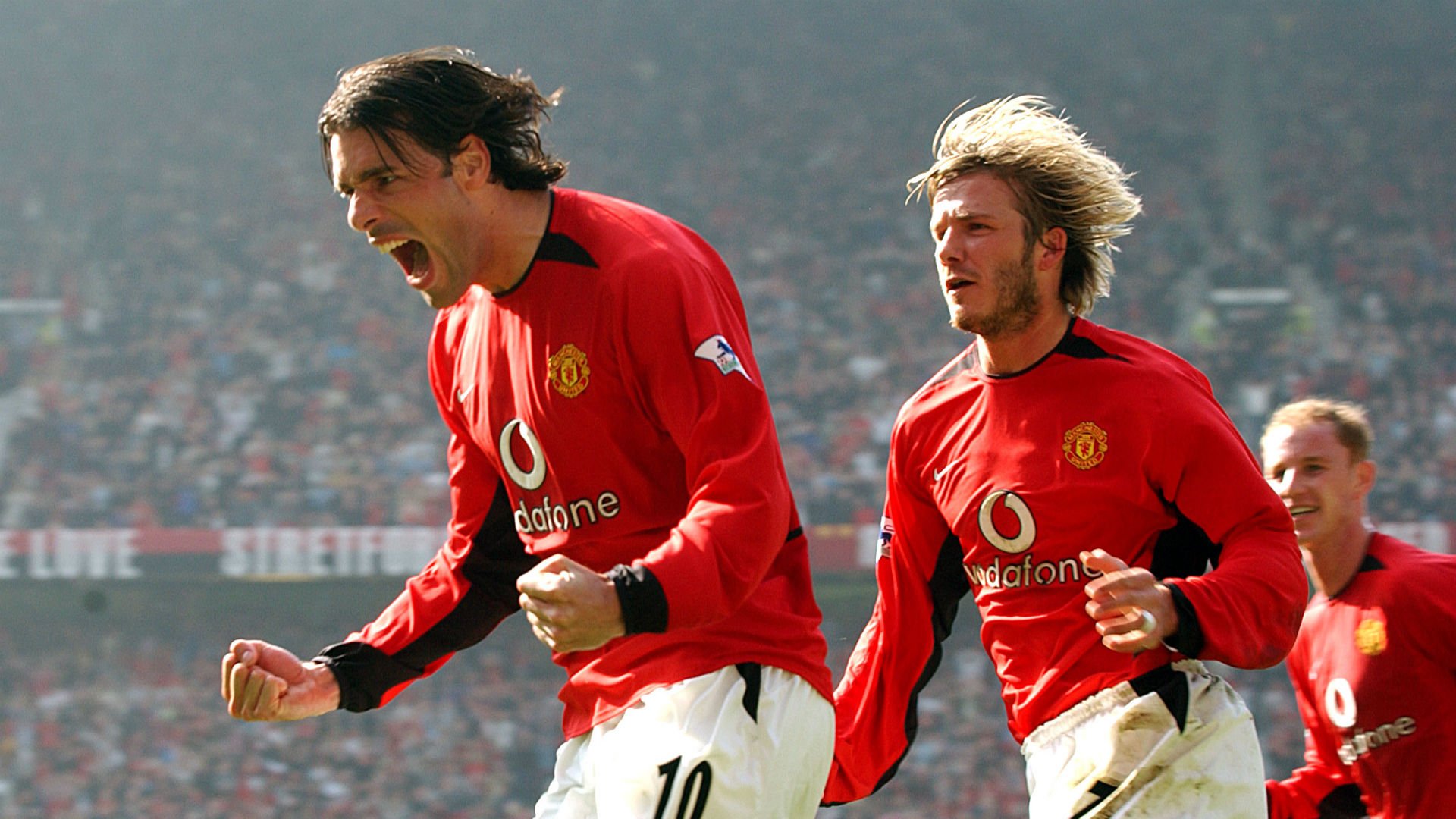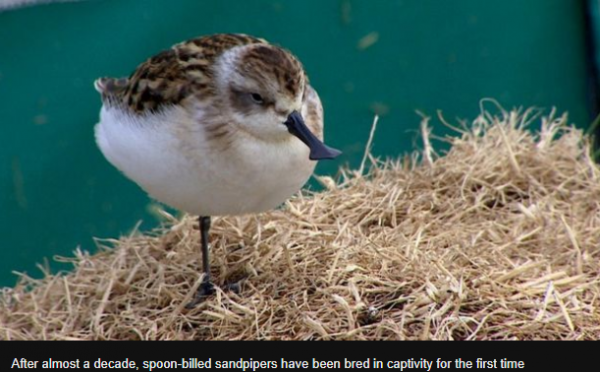-
Posts
20,849 -
Joined
-
Last visited
-
Days Won
49
Everything posted by CaaC (John)
-
The Mysterious Origins of the Handshake Shaking hands seems like a gesture that has been around forever. Indeed, a throne base from the reign of ancient Assyria's Shalmaneser III in the 9th century BCE clearly shows two figures clasping hands. The Iliad, usually dated to the 8th century BCE, mentions that two characters “clasped each other's hands and pledged their faith.” Centuries later, Shakespeare wrote in As You Like It that two characters “shook hands and swore brothers.” It might seem like shaking hands is an ancient custom, the roots of which are lost to the sands of time. Except. Historians who have pored over old etiquette books have noticed that handshaking in the modern sense of a greeting doesn’t appear until the mid-19th century when it was considered a slightly improper gesture that should only be used with friends. But if Shakespeare was writing about shaking hands a few hundred years earlier, what happened? Defining the Handshake According to author Torbjörn Lundmark in his Tales of Hi and Bye: Greeting and Parting Rituals Around the World, the problem comes in differing definitions of the handshake. The early handshakes mentioned above were part of making deals or burying the hatchet; Shalmaneser III’s throne base references him honouring a treaty with the Babylonian king during a revolt. In the Iliad, Diomedes and Glaucus shook hands when they realized they were “guest-friends,” and Diomedes proclaimed “Let’s not try to kill each other.” Shakespeare was similarly referencing settlement of a conflict. The modern handshake as a form of greeting is harder to trace. Traditionally, the origins are often given to the Quakers. But as Dutch sociologist Herman Roodenburg—the chief authority for the history of handshaking—wrote in a chapter of an anthology called A Cultural History of Gesture, “More than in any other field, that of the study of gesture is one in which the historian has to make the most of only a few clues” [PDF]. One of the earliest clues he cites is a 16th-century German translation of the French writer Rabelais’s Gargantua and Pantagruel. When one character meets Gargantua, Rabelais writes (in one modern English translation), “he was greeted with a thousand caresses, a thousand embraces, a thousand good-days.” But according to Roodenburg, the 16th-century German translation adds references to shaking hands. Roodenburg argues that if the translator adapted Rabelais to his audience, that’s an indication for an early handshaking tradition. There's additional evidence for a handshaking tradition in that era: In 1607 the author James Cleland (believed to have been a Scotsman living in England) proclaimed that instead of things like bowing down to everyone’s shoes and kissing hands, he’d rather “retained our good olde Scottish shaking of the two right hands together at meeting with an uncovered head". Handshaking—Back to the Future A popular hypothesis suggests that Cleland’s statements against bowing were actually a wish to go back to a potentially very traditional (though poorly recorded) method of greeting in Europe. As the centuries progressed, handshaking was replaced by more ‘hierarchical’ ways of greeting—like bowing. According to Roodenburg, handshaking survived in a few niches, like in Dutch towns where they’d use the gesture to reconcile after disagreements. Around the same time, the Quakers—who valued equality—also made use of the handshake. Then, as the hierarchies of the continent weakened, the handshake re-emerged as a standard greeting among equals—the way it remains today. Not everyone fell in love with the handshake, however. According to an article from December 1884, “the usage has found its way into other nations, but so contrary is it to their instinct, that, in France, for example, society has been recently formed to abolish ‘le shake-hands’ as a vulgar English innovation.” As for why shaking hands was deemed a good method of greeting, rather than some other gesture, the most popular explanation is that it incapacitates the right hand, making it useless for weapon holding. In the 19th century, it was argued that shaking hands without removing gloves was quite rude and required an immediate apology. One 1870 text explains that this “idea would also seem to be an occult remnant of the old notion that the glove might conceal a weapon.” Sadly, in a world where obscure Rabelais translations provide critical evidence, the true reason may remain forever elusive. https://www.msn.com/en-gb/news/offbeat/the-mysterious-origins-of-the-handshake/ar-BBYx1QB
-

Premier League Confirmed Transfers
CaaC (John) replied to CaaC (John)'s topic in Premier League - English Football Forum
Premier League Confirmed Transfers 2020 - 18 February The January 2020 transfer window for Premier League clubs opened on Wednesday 1 January and closed at 23:00 GMT on Friday 31 January 2020. Clubs had until midnight on Deadline Day to complete the information needed by FIFA's Transfer Matching System to apply for international clearance for new signings. See: Transfer Deadline Day - All the deals IN - OUT UPDATED -
True, a couple of boring episodes but just watching John Lithgow as Churchill makes up for the boring episodes, the London smog crises and a few more episodes opened my eyes and as I said to the wife it's all History really and a bloody good series.
-
-
The wife is going potty over this show lol, I can't keep up with her as when I hit the sack she keeps watching episode after episode, I am way, way behind in the series
-
Shanghai’s using drones instead of fireworks
-
The last places on Earth humans have never visited Satellite photos, drones, far-flung travel destinations—all of these contribute to reducing the number of places on Earth where humankind has never set foot. There is, however, a handful of untouched locations, or at least almost untouched. Wouldn’t it be a good idea for them to stay that way? SLIDES - 1/21
-
Secrets in Their Eyes (2015) - Psychological Thriller with Julie Robers & Nicola Kidaman, not bad 8.0/10
-
Watched it last night with the wife breezed through about 6 episodes before we hit the sack, spotted John Lithgow from 'The Third Rock From The Sun' as Sir Winston Churchill, brilliant, and we quite enjoyed it.
-
Yearly heart checkup with the nurse tomorrow, blood sample, urine sample etc, weight check etc, I know I lost 6ib in weight when I weighed myself last week but still overweight, I should be around 111/2 stone for my height but I am 131/2 stone atm but I feel ok, all the Christmas goodies and booze put the old weight on lol.
-
Atletico Madrid could move for Beijing Guoan striker Cedric Bakambu, 28, in January if they cannot sign first choice Edinson Cavani, 32, from Paris St-Germain. (Mundo Deportivo - in Spanish)
-
Turkey midfielder Arda Turan, 33, hopes to end his career with first club Galatasaray despite currently being on loan at Super Lig rivals Istanbul Basaksehir from Barcelona. (AS)
-
Extinction: A million species at risk, so what is saved? A decade-long project to save one of the world's most endangered birds has finally found success, with the birth of two chicks. But with an estimated one million species at risk across the world and nothing like the money and resources to save them all, how do conservationists choose the few they can save? "You have to wear one of these I'm afraid," Tanya Grigg says sympathetically, handing me a distinctly unflattering blue hair net. "Any stray hairs could wrap around the birds' legs and injure them; they're so delicate." Tanya has a soft voice and gentle manner that I can imagine putting the most skittish of birds at ease. She shows me into a large aviary. There are just two, nervous-looking birds inside - both with miniature, shovel-shaped bills and spindly waders' legs. They hop a little closer to each other and peer at us, apparently suspicious of the intrusion. Then Tanya unfolds a small chair, sits down and scatters some food in their direction. They are immediately, completely engrossed in eating. FULL REPORT
-
-
Liverpool boss Jurgen Klopp has suggested the club have only recalled English centre-back Nat Phillips, 22, from his loan at German side Stuttgart on a temporary basis. (Liverpool Echo)
-
Bayern Munich, Juventus and Paris St-Germain are interested in signing Germany goalkeeper Marc-Andre Ter Stegen, 27, from Barcelona. (Mundo Deportivo - in Spanish)
-
Barcelona says Arturo Vidal's legal complaint against the club over alleged unpaid bonuses is an attempt by the Chile midfielder, 32, to force through a January move to Inter Milan. (ESPN)
-
England right-back Trent Alexander-Arnold, 21, says he wants to remain at Liverpool for his entire career and become a club legend. (Sportbladet, via Independent)
-
- 1,657 replies
-
- space exploration
- astronomy
-
(and 1 more)
Tagged with:
-
Archaeologists discover ancient Mayan palace in eastern Mexico MEXICO CITY (Reuters) - Archaeologists have discovered a large palace likely used by the Mayan elite more than 1,000 years ago in the ancient city of Kuluba, near the modern-day tourist hot spot of Cancun in eastern Mexico, Mexican anthropology officials said. The remains of the six-meter high building, 55 meters (180 feet) long and 15 meters wide suggest the palace was inhabited for two long periods between 600-1050 A.D., the National Institute of Anthropology and History (INAH) said in a statement. The Mayan civilization reached its peak between 250 and 900 A.D. when it ruled large swaths of what is now southern Mexico, Guatemala, Belize and Honduras. The palace was discovered in the east of the Kuluba archaeological zone, a key pre-Hispanic site in Mexico's Yucatan state. "This work is the beginning, we've barely begun uncovering one of the most voluminous structures on the site," archaeologist Alfredo Barrera said in a video shared by INAH. Kuluba had important ties with the Maya cities of Ek' Balam and more crucially, Chichen Itza, falling under its influence and becoming part of its network of trade and territory. Along with the palace, Mexican experts are exploring four other structures in the area known as "Group C" in Kuluba's central square, including an altar, remnants of two residential buildings and a round structure believed to be an oven. Conservationists are exploring reforesting parts of Kuluba to protect the historical site from wind and sun damage, INAH said. The site should be opened to the public in the medium term, the institute added. (Writing by Drazen Jorgic; Editing by David Gregorio) https://www.msn.com/en-gb/news/offbeat/archaeologists-discover-ancient-mayan-palace-in-eastern-mexico/ar-BBYneQP
-
Satellite constellations: Astronomers warn of threat to the view of the Universe Astronomers are warning that their view of the Universe could be under threat. From next week, a campaign to launch thousands of new satellites will begin in earnest, offering high-speed internet access from space. But the first fleets of these spacecraft, which have already been sent into orbit by US company SpaceX, are affecting images of the night sky. They are appearing as bright white streaks, so dazzling that they are competing with the stars. Scientists are worried that future "mega-constellations" of satellites could obscure images from optical telescopes and interfere with radio astronomy observations. Dr Dave Clements, an astrophysicist from Imperial College London, told BBC News: "The night sky is a commons - and what we have here is a tragedy of the commons." The companies involved said they were working with astronomers to minimise the impact of the satellites. Why are so many satellites being launched? It's all about high-speed internet access. Instead of being constrained by wires and cables, satellites can beam internet access down to the ground from space. And if you have lots of them in orbit, it means even the most remote regions can get connectivity. To give you an idea of the numbers, there are currently just 2,200 active satellites flying around the Earth. But as of next week, the Starlink constellation - a project by US company SpaceX - will start sending batches of 60 satellites into orbit every few weeks. This will mean about 1,500 satellites have been launched by the end of next year, and by the mid-2020s there could be a fleet of 12,000. UK company OneWeb are aiming for about 650 satellites - but this could rise to 2,000 if there is enough customer demand. While Amazon has a constellation of 3,200 spacecraft planned. Why are astronomers worried? In May and November, Starlink sent 120 satellites into orbits below 500km. But stargazers were concerned when the spacecraft appeared as bright white flashes on their images. Dhara Patel, an astronomer at the Royal Observatory Greenwich said: "These satellites are about the size of a table, but they're very reflective, and their panels reflect lots of the Sun's light, which means that we can see them in images that we take with telescopes. "These satellites are also big radiowave users… and that means they can interfere with the signals that astronomers using. So it also affects radio astronomy as well." She warns that the problem will grow as the numbers of satellites in orbit increase. What could this mean for research? Dr Clements believes the satellites could have a real impact on observations. "They present a foreground between what we're observing from the Earth and the rest of the Universe. So they get in the way of everything. "And you'll miss whatever is behind them, whether that's a nearby potentially hazardous asteroid or the most distant Quasar in the Universe." He said it would be particularly troublesome for telescopes taking large surveys of the sky, such as the future Large Synoptic Survey Telescope (LSST) in Chile. He explained: "What we want to do with LSST and other telescopes is to make a real-time motion picture of how the sky is changing... "Now we have these satellites that interrupt observations, and it's like someone's walking around firing a flashbulb every now and again." But Prof Martin Barstow, an astrophysicist from the University of Leicester said some of the problems could be fixed. "The numbers of satellites do sound frightening, but actually space is big - so when you superimpose them all on the sky, the density of these things is not going to be very large," he said. "And because the satellites have known positions, you can mitigate. A satellite is going to be a dot in an image and it might appear as a transient burst of light - but you will know about it and can remove it from the image. "It will cost effort and work for observatories to deal with it, but it can be done." For radioastronomy, however, the constellations could pose more of an issue - especially for relatively new telescopes, such as the Square Kilometre Array (SKA). The radio signals the satellites use will be different from the ones astronomers are looking for, but they could still interfere, said Prof Barstow. What do the companies involved say? SpaceX told the BBC that they were actively working with international astronomers to minimise the impact of the Starlink satellites. For their next launch, they are trialling a special coating that is designed to make the spacecraft less bright to see if this will help. OneWeb said they wanted to be a "thought leader in responsible space" and were putting their satellites into an orbit of 1,200km so they would not interfere with astronomical observations. Ruth Pritchard-Kelly, vice president of OneWeb, said: "We chose an orbit as part of our dedication to the responsible use of outer space… And we've also talked to the astronomy community before we launched to make sure that our satellites won't be too reflective and that there won't be radio interference with their radio astronomy." She added that it shouldn't be a case of having to choose between connectivity and astronomy. "There is no question that the entire world is entitled to be connected to the internet…. So it's going to happen. And probably three or four of these systems are going to happen," she said. "And the question will be working with the other stakeholders to make sure that we're not interfering with them, whether they are existing satellite technologies, or the mobile phone on the ground, or the astronomy community. "We know we're going to work it out with everybody." Stargazers will be watching the skies to see if a compromise can be found. https://www.bbc.co.uk/news/science-environment-50870117
- 1,657 replies
-
- space exploration
- astronomy
-
(and 1 more)
Tagged with:
-
-
Got this as a Christmas present from our son, started reading it last night.
-
Reasonable Doubt (2014) - Samuel Lee Jackson & Dominic Cooper, not bad and I quite enjoyed it, 8/10.
-
They said landing on the moon in the '60s was not possible but we all know what happened in 1969. https://www.nasa.gov/centers/kennedy/about/history/timeline/60s-decade.html



.png.258f1e24aa1566c589c7ac7b0ada8f7e.png)



.png.c6719e179b758ecb47a61fea82c49e86.png)

.thumb.png.d9f68ee096f8644316450edf528bcbb5.png)











.thumb.png.3d742a7cca3f13961c13cd2a1f52bd59.png)
.thumb.png.2baa76d393bce080a9dbb4fd4697640f.png)
.thumb.png.8b863fe062c0e66f826b7cbb554f5714.png)
.thumb.png.154bd12d57012e4b97f7fc6b02b96091.png)

.png.224e533a34a911bce429efba5b8402e4.png)